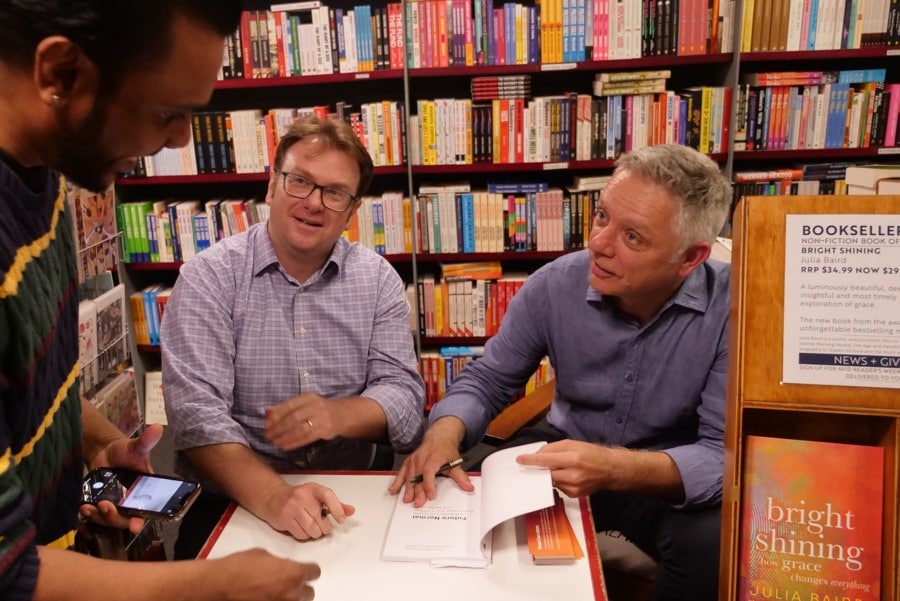
This is an edited excerpt from Future Normal: 8 Questions to Create Businesses Your Children Will Be Proud Of by Griffith University academics and MBA lecturers Nick Barter and Chris Fleming. For more information or to buy your copy visit www.futurenormal.net.
If you are reading this, you are likely to be thinking about studying for an MBA, a degree that you hope will clear a path to leadership. As a leader, you will think about legacy, your own and the one your business is leaving. Yet none of us get to write our legacy, that is for those who come after.
A Simple Algorithm
We are at a point in time where the purpose of business needs to be redefined. For too many decades business theory and conventional business narratives have aided and abetted the simplification of the purpose of business to answering a single question: How do we maximize profit?
This question constrains leaders into looking at their organization primarily through a monetary lens. This reduces the challenge of leading an organization to a simple algorithm, selling goods or services for more than they cost, making one number (revenue) larger than another (costs). The problem with this reduction is that a wider perspective is lost and any meaningful consideration of how a strategy impacts a business’ long- term value, society and our surroundings is ignored.
Losing Legitimacy
This monetary lens is fraying at the edges and has lost its legitimacy. Consider for a moment the behaviours a singular focus on profit maximization permits, or even encourages. On the revenue side, history is awash with examples of questionable strategies employed to maintain or enhance revenue, ranging from tobacco companies deliberately sowing doubt on the science linking cigarette smoking to lung cancer, to subprime lending in the lead up to the 2007– 08 global financial crisis.
On the cost side, cost minimization, despite being given the virtuous sounding moniker ‘productive efficiency’ in economic theory, promotes behaviours such as paying workers as little as possible, seeking inputs as cheaply as possible (ignoring, for example, the environmental damage of unsustainable natural resource extraction or the human costs of sweatshop labour) and disposing of waste at as low cost as possible, which often means directly into our surroundings with little pre-treatment, polluting the water we drink and the air we breathe. Leading a business that perpetuates these behaviours is unlikely to leave a legacy your children will be proud of.
More is Expected
Thankfully a shift is starting to emerge where more is expected of businesses and their leaders. Expecting more requires a move from the simple to the complex. We need to recognize that businesses are not ends in themselves, but tools to enable great outcomes for all. Tools that are not there to serve the few but to serve the many.
This more complex view is not about sacrificing profits, it is about understanding that money is not made in isolation from society, rather it is made as an outcome of exchanges between people who make up our society. Thus, business value is optimized when society thrives.
3 Big Ideas
A Future Normal business is one that acts meaningfully in its surroundings and purposefully to benefit itself and society. To shift your business, the Future Normal approach is built on three big ideas:
- Businesses are the tools we use to shape our world.
- Long term business value is optimised when society thrives.
- The questions you ask matter, asking the now radical enables the Future Normal.
8 Questions
The approach has eight questions at its core. Questions that are easy to ask, challenging to answer. They may appear to you as now radical. Our contention is that they will become Future Normal. History indicates that the now radical has always been a portend to the Future Normal, be it those once radical movements that helped create paid holiday leave, or a forty-hour working week, or health and safety measures in the workplace. Our Future Normal depends on the now radical.
- Does your business’ vision perpetuate a world you want to live in?
- Is your business aligned with our world?
- Does your business listen to all its stakeholders?
- Does your business have the metrics?
- Does your business use language that enables?
- Does your business understand its footprint and tread carefully?
- Does your business learn from nature?
- Does your business lead by enabling others?
These eight questions provide an opportunity for business leaders to develop renewed strategies that will enable their businesses to act meaningfully and purposefully. In this regard, the questions are much more ambitious than those conventionally asked. This is because they don’t take a money first perspective, rather they put us first. They will shift your business to one that creates long-term value and leave a positive legacy, one that your children will be proud of.
Nick Barter is Professor of Strategy and Sustainability at Griffith Business School in Brisbane. Completing his doctorate at the University of St Andrews, his career has spanned industry and academia. Strategy consulting with EY, to leading the Griffith MBA, to advising organizations on moving past myopic approaches.
Chris Fleming is Professor of Economics at the Griffith Business School in Brisbane. Completing his doctorate at the University of Queensland, his career has spanned public sector, academia leading the Griffith MBA and industry, providing advice on economic frameworks that align with our lived reality.
Giveaway
Tell us how you would define your ideal Future Normal business. Email in 100 words or less to chris.fleming@griffith.edu.au. The top three entries will receive a signed copy of the book.










